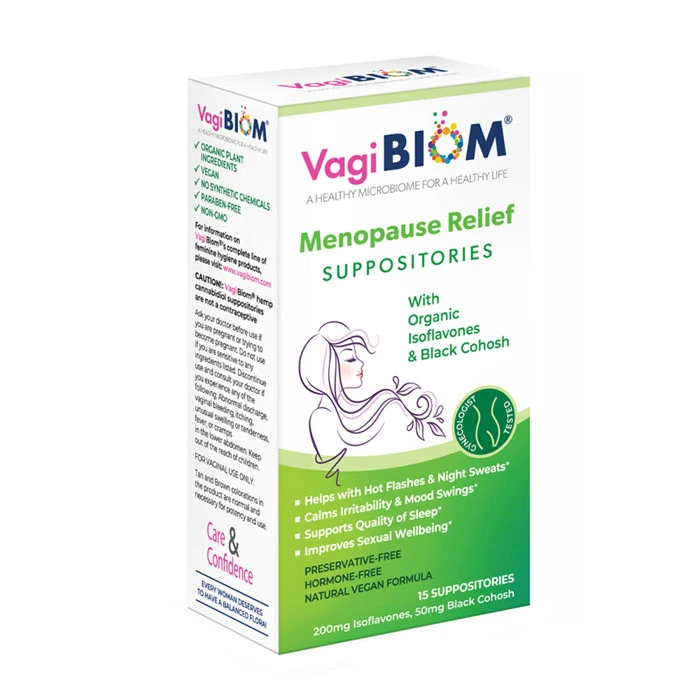Navigating through menopause can be a challenging journey for many women. The onset of symptoms such as hot flashes, mood swings, and sleep disturbances can dramatically impact the quality of life. However, menopause supplements can offer relief by easing these symptoms. This article discusses how supplements can help combat menopause symptoms, backed by scientific research.
Understanding Menopause and its Symptoms
Menopause is a natural process characterized by the end of menstruation and reproductive years in women. Its symptoms can vary but often significantly impact everyday life.
Common Menopause Symptoms
Typical symptoms include the following:
- Hot flashes
- Night sweats
- Mood swings
- Sleep disturbances
- Vaginal dryness.
Some women also experience memory issues and weight gain.
The Impact of Menopause on Health
Beyond discomfort, menopause may pose health risks like bone loss and cardiovascular issues due to the drop in estrogen levels.
Role of Menopause Supplements
Menopause supplements, rich in specific vitamins, minerals, and herbs, can help alleviate menopause symptoms and support overall health during this transition.

Supporting Mood and Sleep
Some supplements contain ingredients like St. John’s Wort and Valerian root, known for their potential benefits in balancing mood and promoting sleep. Biom Probiotics are known for balancing hormones.
Vitamins and Minerals for Menopause
Certain vitamins and minerals are essential during menopause to support bone health and balance hormones.
Vitamin D and Calcium for Bone Health
With estrogen levels dropping during menopause, the risk of bone loss increases. Vitamin D and calcium supplements can help maintain bone density and health.
Balancing Hormones
Phytoestrogen-rich supplements, like those containing soy and flaxseeds, may help balance hormones. However, consult with a healthcare provider before starting any hormonal therapy.
Choosing the Right Menopause Supplement
There are numerous menopause supplements available in the market. Selecting the right one depends on the specific symptoms you’re experiencing and your overall health.
Understanding Ingredients and Dosages
Always check the ingredient list of menopause supplements. Look for evidence-backed ingredients like black cohosh, soy isoflavones, vitamin D, and calcium.
Dietary Habits and Lifestyle Modifications
Alongside supplements, certain dietary habits and lifestyle modifications can complement your efforts in managing menopause symptoms. It includes the following:
- Nutritious food choices
- Regular physical activity
- Adequate rest and stress management
Nutritious Food Choices
Including foods rich in calcium, vitamin D, and phytoestrogens like soy and flaxseeds in your diet can be beneficial. Foods high in omega-3 fatty acids, like fish, nuts, and seeds, may also help manage mood swings.
Regular Physical Activity
Regular exercise is known to reduce menopause symptoms like hot flashes and improve mood and bone health.

Adequate Rest and Stress Management
Prioritizing good quality sleep and incorporating stress management techniques such as yoga, meditation, or deep breathing exercises can help ease menopause symptoms.
Potential Risks and Side Effects of Menopause Supplements
While menopause supplements can be a great way to manage symptoms, it’s essential to be aware of potential risks and side effects.
Interactions and Contraindications
Some supplements can interact with prescription medications or have contraindications. Consult your doctor before starting any supplement regimen, especially if you have underlying health conditions.
Possible Side Effects
Just like any other medication, menopause supplements can have side effects. While they are generally well-tolerated, potential side effects may include digestive issues, headaches, and rashes.
Key Takeaways: Empowering Your Menopause Journey
Managing menopause symptoms can be challenging, but it can be made less daunting with the right information, support, and a tailored approach.
Menopause supplements offer a viable option to mitigate symptoms and enhance overall well-being during this transition.
Consulting with a healthcare professional will help tailor a regimen best suited to your needs and ensure safe and effective use of these supplements. Remember, every woman’s menopause journey is unique – what works best for you is what matters the most.
Consulting a Healthcare Provider
It’s important to consult a healthcare provider before starting any supplement regimen, especially for individuals with underlying health conditions or those taking other medications.
Frequently Asked Questions
Why are vitamin D and calcium important during menopause?
Vitamin D and calcium are important for maintaining bone health as the risk of bone loss increases due to lower estrogen levels during menopause.
Can supplements help balance hormones during menopause?
Yes, supplements rich in phytoestrogens like soy and flaxseeds may help balance hormones. Consultation with a healthcare provider is advised.
How to choose the right menopause supplement?
The right supplement depends on individual symptoms and overall health. Always look for evidence-backed ingredients and consult a healthcare provider.




